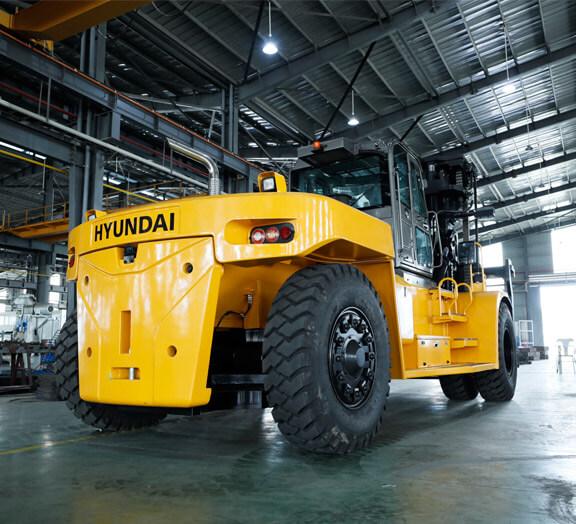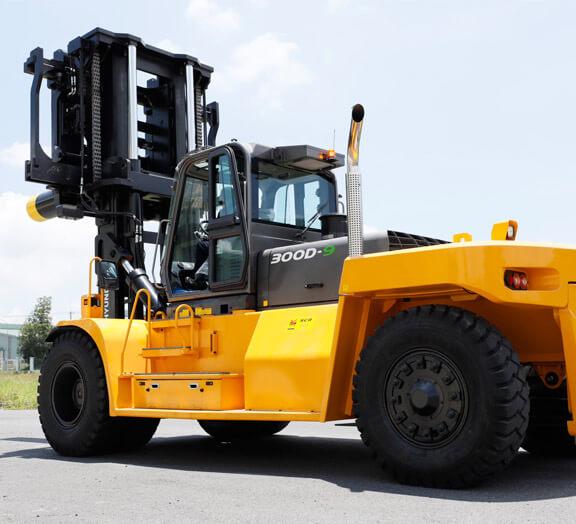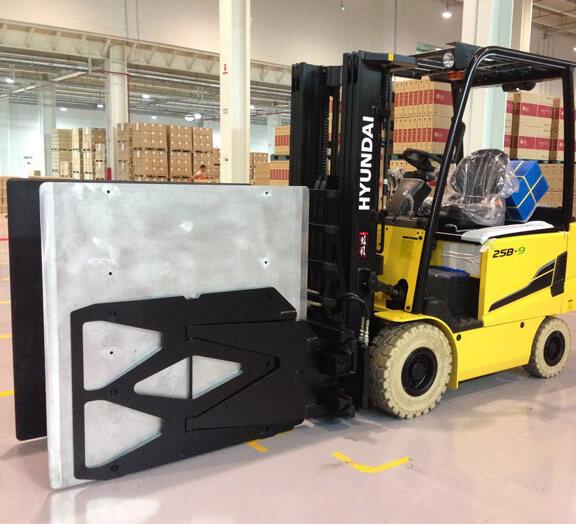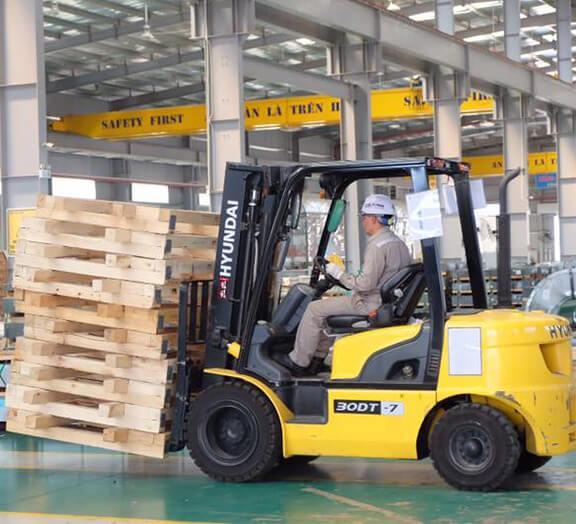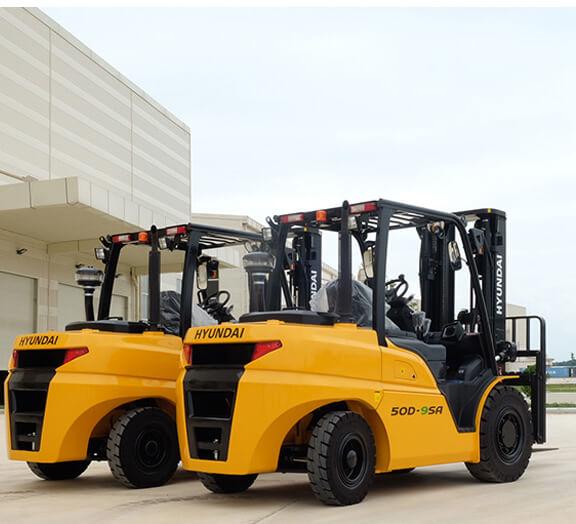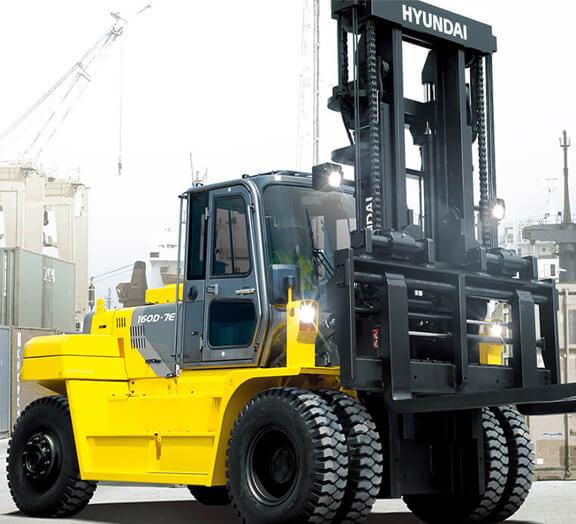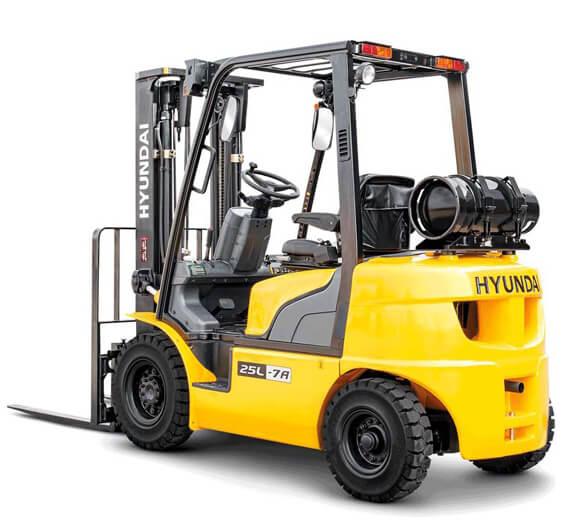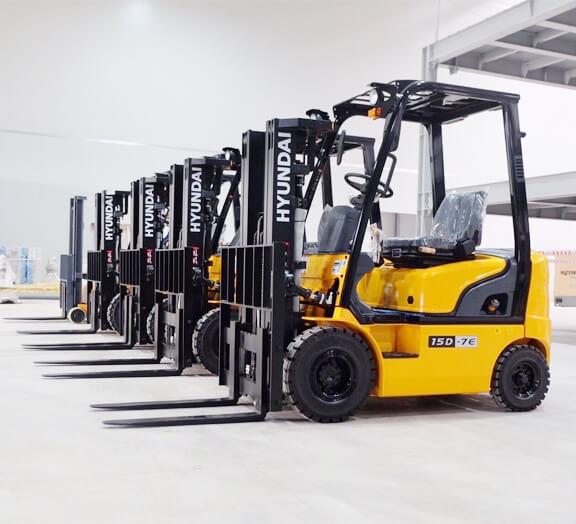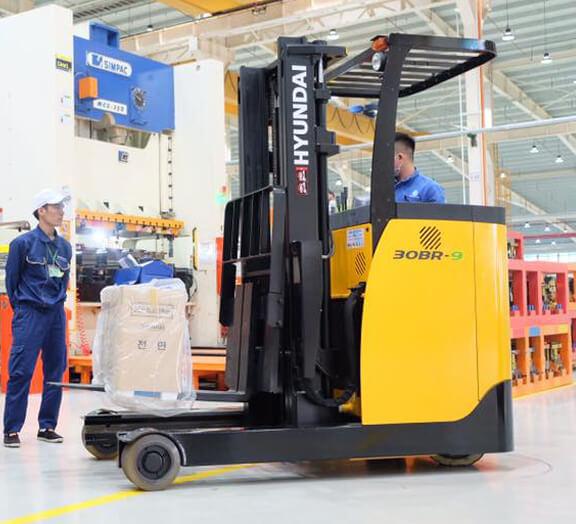What types of forklift certifications are required to operate forklifts in a warehouse? Can forklifts be used on public roads? What certifications are needed for forklifts to participate in road traffic?
These are common challenges that many businesses face. Let NLP168 help you clear up these questions in this article!
1. FORKLIFT CERTIFICATION REQUIRED FOR WAREHOUSE OPERATION
Forklifts have become widely used material handling equipment across various industries today. However, operating these powerful industrial machines is not an easy task. Every forklift operator must complete a certified training course and be granted a legally recognized forklift license.
According to Vietnamese law, to legally operate a forklift in a warehouse environment, the operator must possess both a Forklift Operator Certificate and a Group 3 Occupational Safety Training Certificate.
1.1. FORKLIFT OPERATOR CERTIFICATE
The forklift operator certificate is a document that proves that holder has completed forklift operation training and is qualified to safely operate the vehicle. According to regulations from the Ministry of Labor, Invalids and Social Affairs, forklift drivers must have a vocational certificate or a forklift operation certificate. If found operating without this certificate during inspections, they may be fined from 15 million to 20 million VND.
Information about the Forklift Operation certificate:
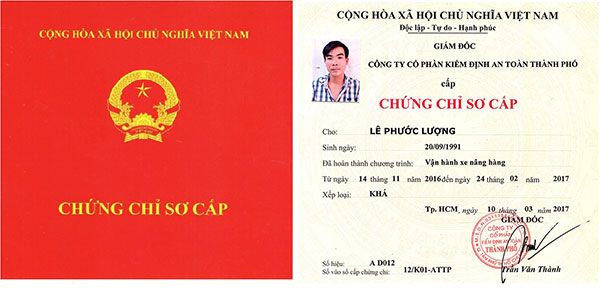
Issuing Authority: Certified vocational training centers licensed by the Department of Occupational Safety under the Ministry of Labor, Invalids and Social Affairs.
Under Article 53 of Decree No. 44/2016/NĐ-CP, dated May 15, 2016, regarding training, examination, licensing and management of forklift operators, the Department of Occupational Safety is authorized to oversee and issue certifications for forklift operation training and testing.
Training content:
Theoretical knowledge: forklift structure, operational principles and safety regulations.
Practical training: forklift driving techniques, fork handling, lifting, lowering skills and basis troubleshooting, maintenance procedures.
Training duration:
Varies by institution but typically lasts up to 3 months. Trainees usually receive their certificate within 3 weeks after passing the required course modules.
Validity period:
The forklift operator certificate is valid for 5 years from the date of issuance. Upon expiration, the operator must retake the examination to be recertified in accordance with current regulations.
Recognition:
The certificate is valid nationwide and serves as proof that the worker is qualified to operate a forklift.
Obtaining a forklift license not only equips workers with the operational skills needed to drive a forklift, but also provides essential knowledge about the machine’s mechanics, safety maintenance, and repair techniques.
It is also an official acknowledgment of a worker’s professional qualifications. Therefore, the forklift operator certificate is mandatory for anyone operating a forklift. Refer to the detailed legal provisions on forklift certification requirements [here].
Participating in Group 3 Occupational Safety Training
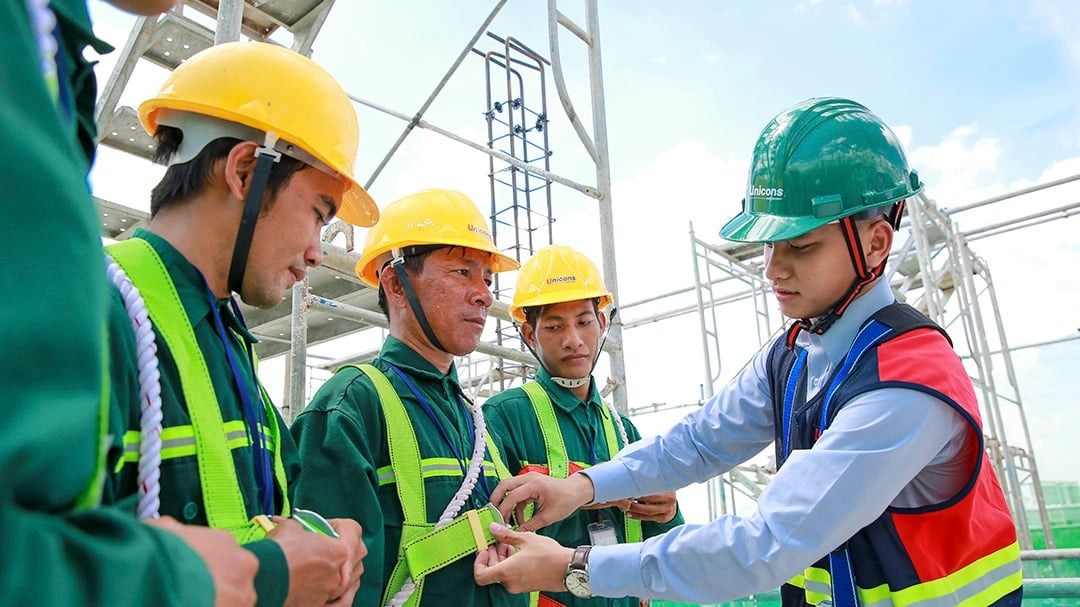
Operating a forklift poses many forklift accidents not only to the operator but also to those around them. Each year, thousands of accidents involve forklifts - many of which result in serious injury or even fatalities. To raise safety awareness when operating forklifts, operators - classified under equipment requiring strict occupational safety measures - must undergo training and obtain a Group 3 Occupational Safety Certificate, as stipulated in Circular No. 19/2017/TT-BLĐTBXH.
Training participants include forklift operators, maintenance and repair personnel, and those involved in safety management related to forklift operations.
Training duration: 1 day (8 hours)
Training content includes:
- Causes of accidents (equipment, work environment, human error)
- Risk identification, assessment, and prevention of hazards such as heat, electricity, falling objects, explosions, etc.
- Emergency response guidance
- Proper use of personal protective equipment (PPE)
- Safety principles for warehouses and factories
- Certificate validity: 2 years from the date of issuance
There are currently many training service providers offering forklift safety programs, making it easy and convenient for businesses to ensure their workers are trained. Anyone who frequently works with forklifts is strongly encouraged - and in many cases required - to complete this training.
2. Forklift Certifications Required for Road Use
Although forklifts primarily operate within warehouses or industrial facilities, according to the Ministry of Transport, forklifts can legally participate in road traffic provided they meet safety conditions and possess the required documents, including registration and inspection papers issued by authorized agencies.
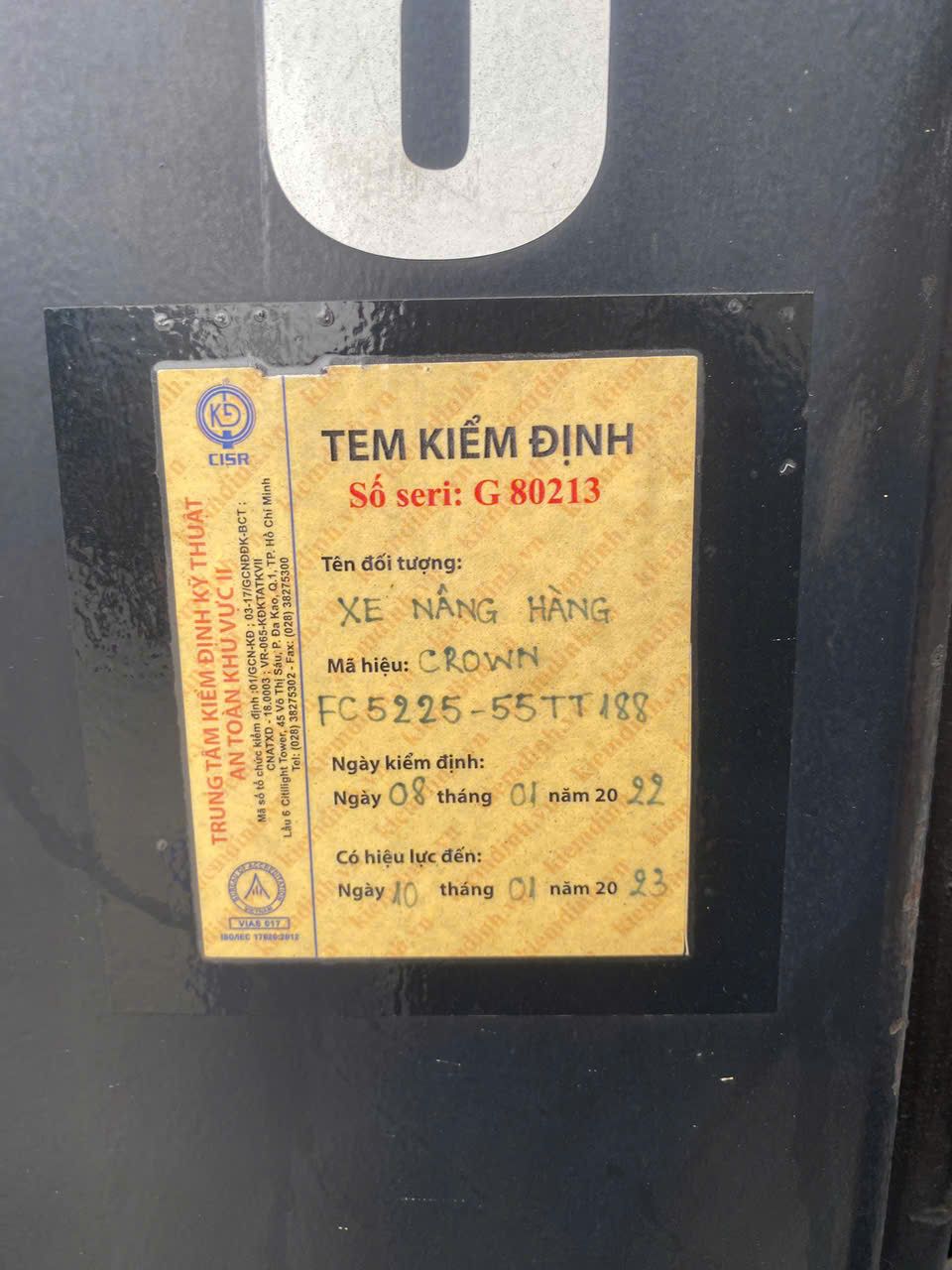
The registration process can be done at certified inspection centers nationwide, making it convenient for businesses to submit paperwork and register their forklifts for lawful operation on public roads.
For forklifts to be allowed on public roads, they must undergo technical safety and environmental protection inspections as specialized vehicles. The following conditions must be met:
- A fully functional braking system
- An effective steering system
- Operational lighting system
- Clear visibility for the operator
- All specialized components must be securely installed in the correct positions to ensure safety during travel
- Emission and noise levels must comply with environmental standards
- Must ensure safety for people, vehicles, and road infrastructure while moving
In addition to the standard forklift operator certificate and Group 3 safety training certificate required for warehouse use, forklifts must also have the following to operate on public roads:
- Driver's License (B2/C/D...):
The operator must hold a standard driver’s license (Class B2 or higher), issued by a licensed driving school. - Vehicle Registration & Inspection:
Before operating on public roads, the forklift must be taken to an inspection center, along with the required paperwork, for evaluation and certification by authorized agencies. - Circulation Registration and License Plate Issuance:
After passing inspection, the enterprise must register the forklift with the Department of Transport to receive a license plate.
Once all documents and a license plate are in place, the forklift is legally permitted to participate in traffic according to national regulations. These requirements are critical for ensuring forklift operation safety in public areas and for easing regulatory management and risk reduction for businesses.
3. Why are forklift certifications required for both warehouse use and road operation?
Owning the proper forklift certifications is not just an administrative procedure - it is a legal and safety requirement. Forklifts are indispensable in industrial environments such as warehouses and production lines, but if mishandled, they pose significant risks.
Mandatory participation in occupational safety training and possession of a valid driving license are also intended to raise awareness of operational skills, hazard recognition, emergency handling procedures, and safety regulations. This is especially important when operating a massive industrial machine—a steel frame weighing tons—that can pose danger to everyone and everything nearby.
From a business perspective, ensuring that employees have forklift certification is also a required condition during labor inspections, occupational safety evaluations, and a basis for protecting the enterprise from unnecessary risks. On the other hand, certified operators tend to understand the capabilities and technical limits of forklifts, enabling more accurate operation, fuel savings, and reduced equipment repair costs—key factors in improving productivity in professional environments.
In summary, forklift certification and operational requirements are not only occupational conditions but also a commitment to safety and responsibility from both workers and enterprises. This is a prerequisite for building a modern, safe, and sustainable working environment.
In addition, choosing a forklift that meets safety standards is equally important. A high-quality forklift must be fully equipped with safety features such as: effective braking system, warning horn, lighting system, surveillance camera, reverse sensor, cabin protection frame... These features help drivers better handle situations and reduce risks of rollover, collision, or crushing people and goods in tight workspaces.
With 24 years of experience in providing lifting solutions, NLP168 ensures that Hyundai and Crown forklifts meet all safety demands of enterprises. NLP168 also supports inspection services for customers who need to use forklifts in road traffic. Contact us now for more details!
Nhat Lo Phat 168 Co., Ltd
Northern Vietnam: 093 208 1688
Southern Vietnam: 090 345 1688
Fanpage: Nhất Lộ Phát 168 on Facebook
Instagram: @nhat_lo_phat_168
YouTube Channels:



